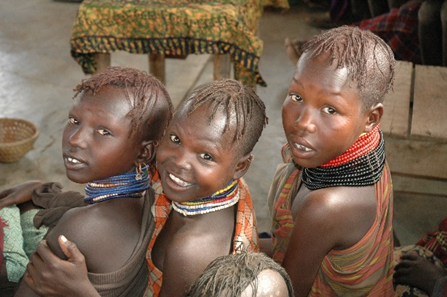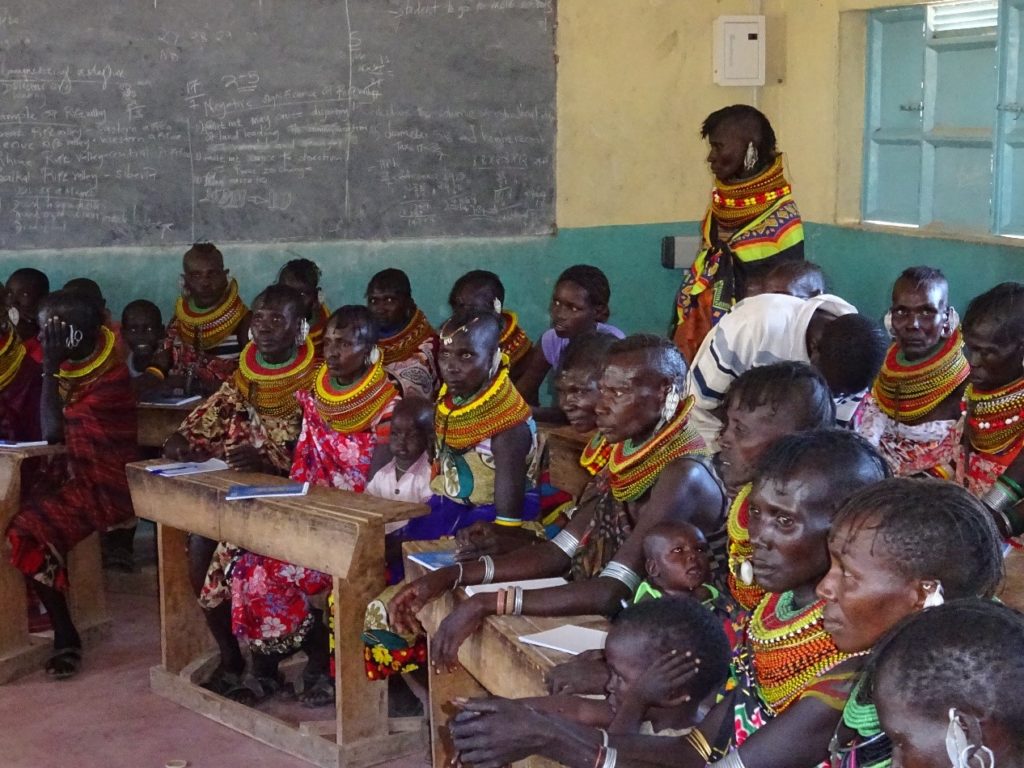His Testimony
By Fr. John O’Callaghan SPS. (A native of County Limerick, Ireland)
(In ‘Turkana-land’ Kenya, from 2009-2021, Shalom-SCCRR has completed 102 inter-religious and inter-ethnic school-educational and infrastructural projects (classrooms, desks, solar, books, and WASH [water, sanitation, and hygiene projects, etc.]. These projects have benefitted 31,644 pupils-students in primary and secondary schools respectively. Other Shalom-SCCRR projects in Turkana have been implemented addressing water systems and health development intervention [Francis Mwangi MA, Monitoring and Evaluation and Learning Officer]. https://shalomconflictcenter.org/2010-2020-shalom-sccrr-results-and-achievements/)
“I have been working in The Turkana District of Kenya since 1967, involved in medical, education, water, and other development projects, among other things. In the 1960s Turkana was one of the most backward parts of Kenya. It had only one Primary school, for the children of the Administration staff in the District Head Quarters [H/Q], Lodwar. This work depended on the population in the area, availability of water, agricultural land, interest of the people, the needs of the people, among other things. It was an interesting life and one was never without a reason to get up in the morning.
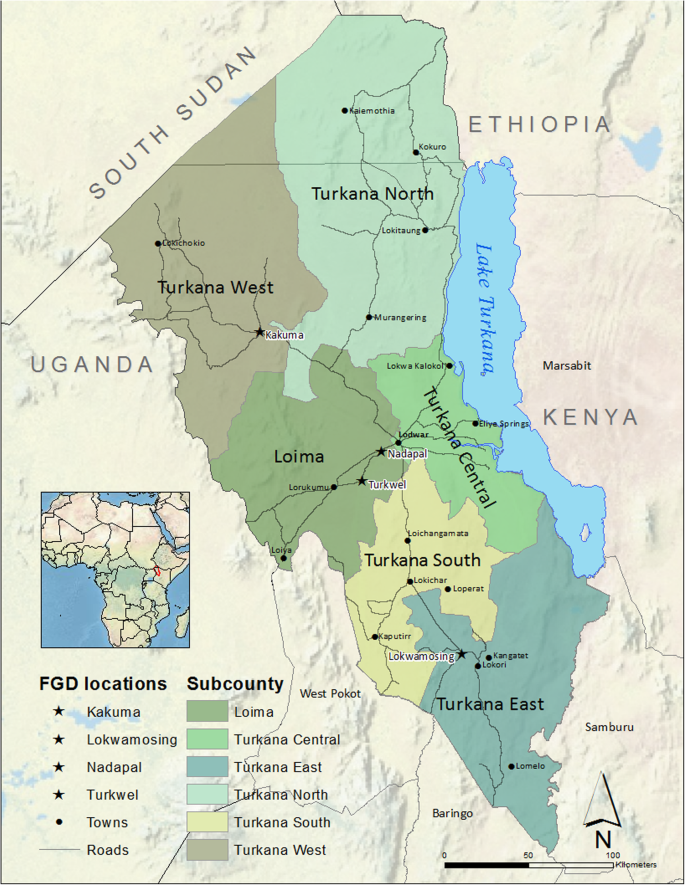
The only interest the Government had was to hold on to it as part of Kenya, and so security was the main issue. The H/Q for security was Lokitaung in the North East of the District and a number of Police Posts were scattered around in various border posts, e.g. Todonyang’, Kibish, Lokichoggio, Oropoi, Lorrengippi, Kaputir, and Kapedo. Many foreigners [and some Administrations in the past felt that the people should be left alone, left to their traditional way of life with no schools, health provisions, roads, jobs, contact with the rest of the world. A Pass was obtained from the District Commissioner [DC] in Kitale for any stranger wishing to enter Turkana and this was presented to the DC in Lodwar on arrival.
In the early 1960s a severe famine hit Turkana. The Government had now a new problem on their hands and one of the solutions was to invite a few of the main Churches in Kenya to come to Turkana and help to feed the population. The Government would provide the food and the Churches: African Inland Mission in the south, Catholic in the centre, and Salvation Army in the north, would distribute and organize the feeding programme. It worked fine and within 5/6 years the famine was contained. The rain came, and so many people went back to their nomadic way of life. Many went to Lake Turkana to become fishermen and the rest went to the Turkwel and Kerio rivers to become farmers with irrigation.
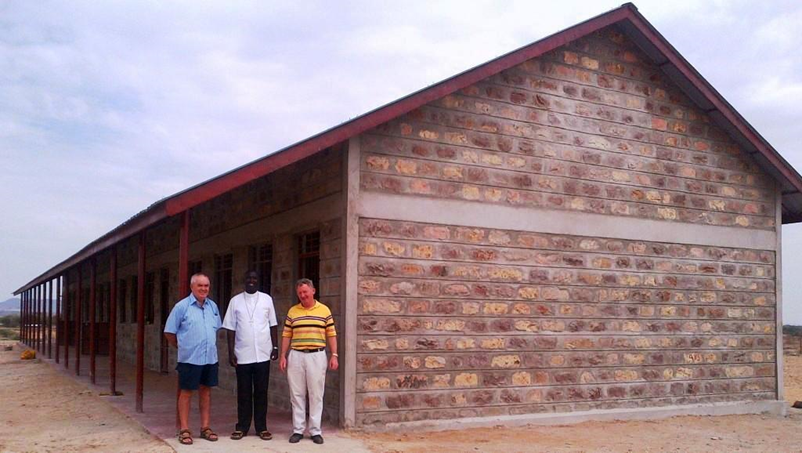
But Turkana had changed with the famine. The Churches had no time for letting the people continue without Education and Health Care. The Catholic Church especially took the lead in providing these essential services, and the new Independent Government gave all the support and encouragement they could. Schools began in the Famine camps, but went with the people to the Lake and the rivers, and indeed all over. Children in the camps were happy to go to school where they got extra food as well as knowledge. But the nomads were less enthusiastic – they wanted the children at home to look after the animals. But there was no stopping the rush of the Turkana to avail themselves of all that the modern world had to offer, good and bad, and the nomads eventually saw the benefits and adapted to it.
The neighbours were basically nomadic tribes like the Turkana which led to many disputes over grazing, water, and land. It was almost a cultural thing to fight and raid one another. This became serious when modern guns became easily available after the wars in Somalia, Ethiopia, Sudan, and Uganda. Businessmen and Political leaders got involved for their own reasons and intertribal attacks became a definite problem for the parishes and stations along the borders of Turkana.
Shalom-SCCRR got involved in conflict transformation and peacemaking (peacebuilding) work and part of the solution was to transform and improve the conflict and marginalization situation of the people on the ground among the warring tribes such as the Merille, Toposa, Karamojong, Pokot, Samburu, and Turkana. It was at this level that I became involved with Shalom. I honestly forget when or how this came about but I applied to Shalom for a number of projects over the years. One early project was building 4 classrooms, plus an office/store, at the new Primary school attached to the Internally Displaced People [IDP] camp at Canaan in Lodwar town. The children here were all Kenyans who had been driven from their homes during the political clashes of 2007/8 in Kenya.
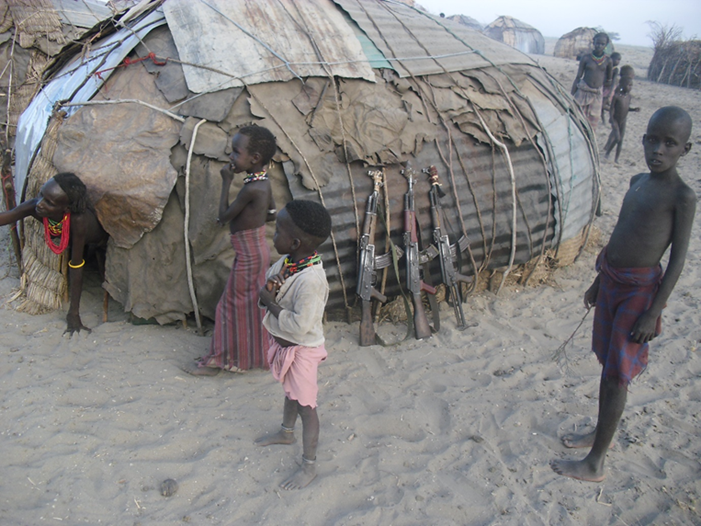
Later, I applied to Shalom for assistance in helping 5 of our outstations to build classrooms for their Primary schools. We met the people and agreed with them to build an office/store with a classroom attached at each side. We would build the structure and put up the roof, with a door and link wire around the classrooms to provide security. We also provided desks. The parents would build up the walls later with whatever materials they could get locally, dune palm, mud, bricks, stones, timber. Many of them did their part successfully, while some didn’t succeed so well, but all got the office/store and roofs for the classrooms. Shalom paid the cost of the materials we bought; cement, timber, corrugated iron for the roofs, and payment for the technical work. This was a cheap, efficient, and successful project carried out with the 5 communities.
Upon completion of the classrooms, I applied to Shalom for assistance in getting water. Shalom agreed to sponsor a project supplying water to the Bishop Mahon Centre in Lodwar. This involved drilling a Borehole, piping the water to the main Tank, and setting up the Solar pumping system. This has proved very successful and today supplies all the water for the Centre and the many trees growing there.
Shalom agreed to assist in building the first 4 classrooms for the new St. Stephens High school in Lodwar. Over the following years, we got further assistance when Shalom supplied 750 bags of cement to be used in the construction of the dining hall and Dormitory for Girls.
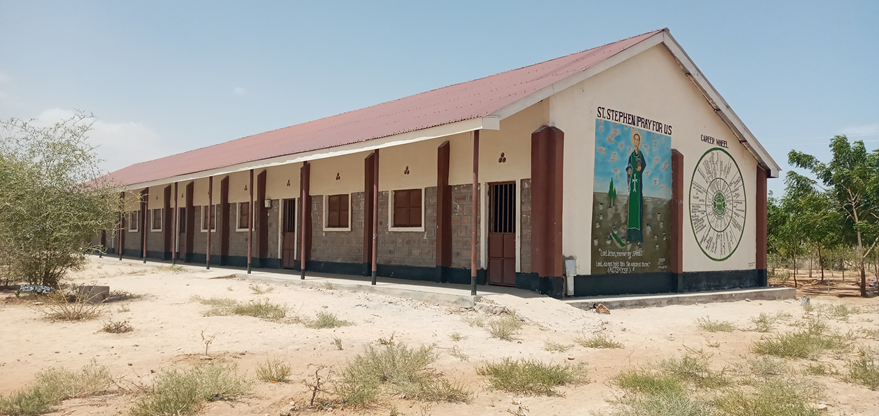
As can be seen, Shalom has played a major part in the success of this school and we look forward to further cooperation in future. Education is probably an essential means of bringing peace to the warring tribes of the Karamojong cluster, as we can see along the Turkana/Pokot /Karamojong border even today. The places giving trouble are places where education is still backward, the Merille/Turkana, Toposa/Turkana, and Baringo/Turkana borders. Educated people have more to occupy themselves with, and more to loose in conflict. They are also the people with power facing into the future. It is important to provide a full, holistic education where people will be able to develop their traditional values of respect for life, honesty, and self-reliance as well as the usual subjects of the school curriculum.
We thank the Shalom Center for Conflict Resolution and Reconciliation (SCCRR) organization and team for helping us with the ‘where with all’ to do the things we set out to do among the Turkana and parts adjacent”. ‘THANK YOU‘
By Fr. John O’Callaghan SPS, Kibomet, Kitale, Kenya, 2021.
(Positive impacts of the projects; education, learning and health outcomes:
- More standard and permanent classrooms available for learning consequently reducing overcrowding and therefore better class management.
- Schools access to Solar energy in classrooms, dormitories and science/educational laboratories.
- Availability of teaching and learning materials impacting on Learner Textbook Ratio and improved academic performance: https://shalomconflictcenter.org/thousands-of-children-and-families-in-nairobis-korogocho-slum-benefit-from-shalom-sccrr-transforming-interventions/
- Functional toilets that are single sex and usable hence improving Pupil Toilet Ratio for proper hygiene practices and safety especially for girls: https://shalomconflictcenter.org/the-girl-child-shalom-sccrr-impacting-the-lives-of-young-girls-in-marginalized-and-remote-locations-in-eastern-africa/
- Availability of clean drinking water in schools and communities
- Availability of hand washing facilities (a crucial intervention for prevention of Covid-19 spread among pupils/students – recently, Shalom-SCCRR provided medical and Covid-19 Personal Protective Equipment to 2 health centres, and funded training for 32 healthcare professionals): https://shalomconflictcenter.org/2020-shalom-sccrr-peacebuilding-and-educational-health-development-achievements/ )

